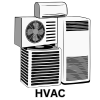In this article we discuss the detailed comparison between Power Steering and Manual Steering
In this article:
Power Steering vs. Manual Steering
1. Definition
Manual Steering:
A steering system that relies entirely on the driver’s physical effort to turn the wheels.
Power Steering:
A steering system that uses hydraulic, electric, or electro-hydraulic power assist to reduce driver effort.
2. Effort Required
Manual Steering:
High effort, especially at low speeds or during parking.
Power Steering:
Much lower effort, easy to turn even at low speeds.
3. Components
Manual Steering:
Steering wheel, steering shaft, steering gearbox (worm & sector, rack & pinion, etc.), pitman arm, drag link, tie rods, knuckle.
Power Steering:
Same basic components plus power-assist components (hydraulic pump, fluid reservoir, hoses OR electric motor and ECU).
4. Gear Ratio
Manual Steering:
Higher gear ratio for more mechanical advantage.
Power Steering:
Lower gear ratio possible because assistance makes turning easier.
5. Driver Feedback
Manual Steering:
Provides better road feel (direct feedback from road surface).
Power Steering:
Can slightly reduce road feel (especially in fully electric power steering), though modern systems compensate for this.
6. Maintenance
Manual Steering:
Simple, low maintenance.
Power Steering:
More complex — requires maintenance of pump, fluid, hoses, or electric system.
7. Cost
Manual Steering:
Less expensive to manufacture.
Power Steering:
More expensive due to additional components.
8. Failure Condition
Manual Steering:
No special issue (always operable).
Power Steering:
If power assist fails, steering becomes very heavy but still functional (unassisted mode).
9. Applications
Manual Steering:
Older cars, basic economy vehicles, light trucks, tractors.
Power Steering:
Modern cars, SUVs, trucks — almost all vehicles today use some form of power steering.
Summary:
- Manual Steering is simpler, cheaper, and gives excellent road feel — but requires more effort.
- Power Steering is easier to operate, safer for heavy vehicles, and better for comfort — but is more complex and costly.
Other courses:



